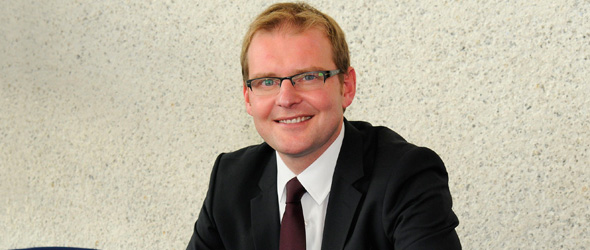A Brief of the Visit of the President of the UEFA in Poland – Marcin Herra
October 31, 2011
What did Michel Platini really tell us?
Precisely, what exactly did he say? Did he say anything new? Anything we wouldn’t expect? Did anything during his visit and in his statements surprise us?
“I am a happy president”, “The UEFA has never had any doubts”, “Where two years ago there was nothing but mud and rubble, modern stadiums stand today”. These are but a few examples of Platini’s statements made between October 11th and 13th during his visit to Poland. Very optimistic, maybe too optimistic? No, the statements are rather rational, rather compliant with the actual changes, with the work already visible, with what is to follow and to be accomplished in Poland during the more than two hundred days that still separate us from Euro 2012.
However, as they say – the devil is in the details – and the same applies to the message which Michel Platini has left us. As usual, we have been focusing on the high marks he gave as regards the most important elements of the infrastructure connected with the tournament. Stadiums – all is fine, maybe even more than fine. A certain Italian journalist has recently featured the PGE Arena Stadium in Gdansk as the Lamborghini among football stadiums in Europe. Airports – all is fine. During the Euro tournament (and obviously afterwards, too), the airports will process two or three times as many passengers per hour. Transport – not bad, some work is still required, some risks need to be taken, but these risks have been managed on current bases and we are able to manage them effectively.
However, I have an impression that the message in the media debate launched after the visit of UEFA officials has missed out on (or maybe it has just failed to highlight it sufficiently) the most crucial of issues. Namely? Organisation, organisation, and once again organisation. Since this is what Michel Platini also, or maybe first and foremost, talked about. Preparations in the scope of organisation cover more than 250 projects coordinated or realised by PL.2012 with more than 170 partners. The main issues include security (everywhere, not only on during the games) and transport – today each scenario is still within the realm of possibility and in the development phase – we are looking forward to the drawing of tournament groups scheduled for December 2nd – the date which shall furnish us with the knowledge on the final form and course of the tournament. Next – the service for visitors. Volunteer work www.wolontariatmiejski2012.pl is of utmost importance, we have just launched the recruitment process aimed at recruiting approximately 3,000 city volunteers in 4 Host Cities. Their task will be to take care of the complex information services and high quality of services to be offered to our guests in June 2012. One can also not forget about the Euro Academy, i.e. trainings for the public sector funded from the EU resources (www.akademiaeuro.pl). Not to mention many other elements. We are also engaged in the national and urban strategies for transport services since it is an element that stands out as the most important component of organisation of transportation.
Why should I at all bother to write about it? Because I am under the impression that it is an opportune moment to start a discussion about this Euro 2012 of ours in the full range of issues. Sure, about the infrastructure, as well. However, maybe it is worth expanding this debate, developing and enriching it by things and subjects which will be of fundamental importance for the size of our success to be achieved in the year 2012 and later, already after Euro 2012. Organisation, organisation, and once again organisation.
To sum it all up, one more quote from Michel Platini: “Euro 2012 – I see no other way, but success”. If Platini believes in success, what reason do we have not to believe in it? None, most likely. Euro 2012 is worth “liking”.
The President of The Board, PL.2012
{jComments on}


